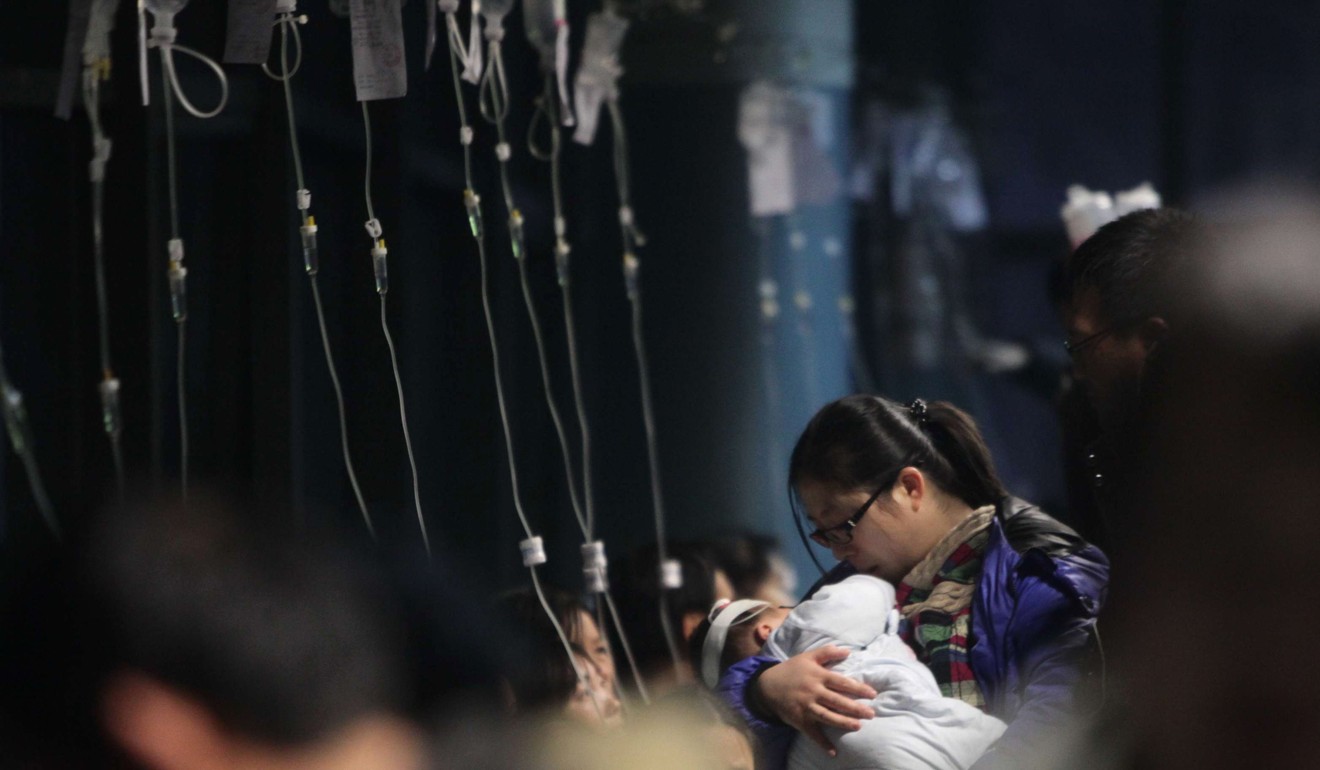
Lifting the dark cloud of postnatal depression hanging over China’s new mothers
Postnatal depression afflicts women around the world but social stigmas and pressures compound the problem on the Chinese mainland
She was 27, a homemaker and lived in a high-rise building in Xian, Shaanxi province, with her husband and young son.
Then one day last month she took the boy and both plunged to their deaths from the building’s 24th floor.
According to Chinese media reports, the woman had been racked with depression since the birth of her son five years earlier.
The family tragedy triggered by postnatal depression is just one of several to have made headlines in China in recent months.
Many mothers experience mood disorders after the birth of a child, ranging from the “baby blues” to depression. Symptoms can include feelings of disconnectedness, guilt or not bonding with the baby, and the causes can be a combination of physical, emotional and environmental factors.
Researchers say that while the conditions are common to new mothers around the world, women in China face additional challenges from social expectations to attitudes to counselling.

One of those challenges was the pressure to conform to gender and family roles while also working outside the home, said Harvard-trained sociologist Zhou Yun, now a postdoctoral research associate in population studies at Brown University.
Zhou said the employment rate of Chinese women was high compared with other Asian countries, especially as more women are completing tertiary education. But many were also having to do a second shift at home.
“Research has shown that Chinese women are doing a lot more housework and parenting than men. And many women also have to work, which means that they actually have two jobs ... It’s a double burden,” she said.
“At home, mothers often take care of the day-to-day tedious work that is time-consuming and often invisible, while fathers are sometimes seen as doing their share if they playing with the kids.”
The social definition of what was a “good parent” was also different for men and women.
“For example, there is a long tradition of praising ‘great mothers’ for their selfless devotion. It essentially is promoting the idea of a mother sacrificing her own needs for those of the family. But we hardly hold men to the same standards,” Zhou said.
Ji Longmei, a senior psychological consultant at Shanghai Soul Garden Mental Health Counselling Centre, said another contributing factor in some cases of postnatal depression was the traditional Chinese practice of zuo yue zi, or “sitting the month” immediately after birth.
For that first month, the woman is not allowed to wash her hair, have a cold drink or leave the home. The practice is to ensure the mother has absolute rest but Ji said it could take a psychological toll.
“This tradition is creating the possibility of depression or worsening bad moods because the new mothers are confined at home all day long. In many cases those bad moods wouldn’t be an issue if they could enjoy the sunshine and outdoors, chat with a friend or do some exercise during this period,” Ji said.
These problems were compounded by the Chinese attitude to mental health, she said.
Eleven to 20 per cent of new mothers in the US report symptoms of the postnatal depression, according to the US Centres for Disease Control and Prevention. There’s no authoritative data for China, but the range frequently cited by people in the field is 10 to 15 per cent.
Society doesn’t have enough respect for those who don’t want to be a mother
But Ji said the rate for China was likely to be higher because many did not seek professional help.
“While almost every North American in the middle class and above may have seen a therapist, less than 10 per cent of those with psychological issues go to the doctor in China. Even if they do, they dare not admit that to others,” she said.
“A sense of shame of being ill used to be common among us, and is still widely shared today. For example, many parents would keep it a secret if their children have depression because they think this will have negative influence when they look for a job or someone to marry.”
Despite the stigma, the number of people going to Ji for help with postnatal depression has risen in recent years.
Zhou, from Brown University, said the growing number of media reports on postnatal depression was a good sign in that people were starting to pay more attention to the issue.
But the focus now should be on destigmatising depression and ensuring the well-being of mothers, instead of blaming women for hurting themselves or even their children, she said.
Li Hongyan, an obstetrician at Beijing Jishuitan Hospital, warned that the number of cases of postnatal depression could rise as more women questioned their desire to be mothers while still being forced by social and family pressures into having children.
“One woman told me in the delivery room that she wouldn’t look after the baby after it was born. She said it was her mother-in-law and husband who wanted the baby and she was just doing it for them,” Li said.
“Another patient who got pregnant under similar pressure simply divorced her husband after delivering the baby … Society doesn’t have enough respect for those who don’t want to be a mother.”

